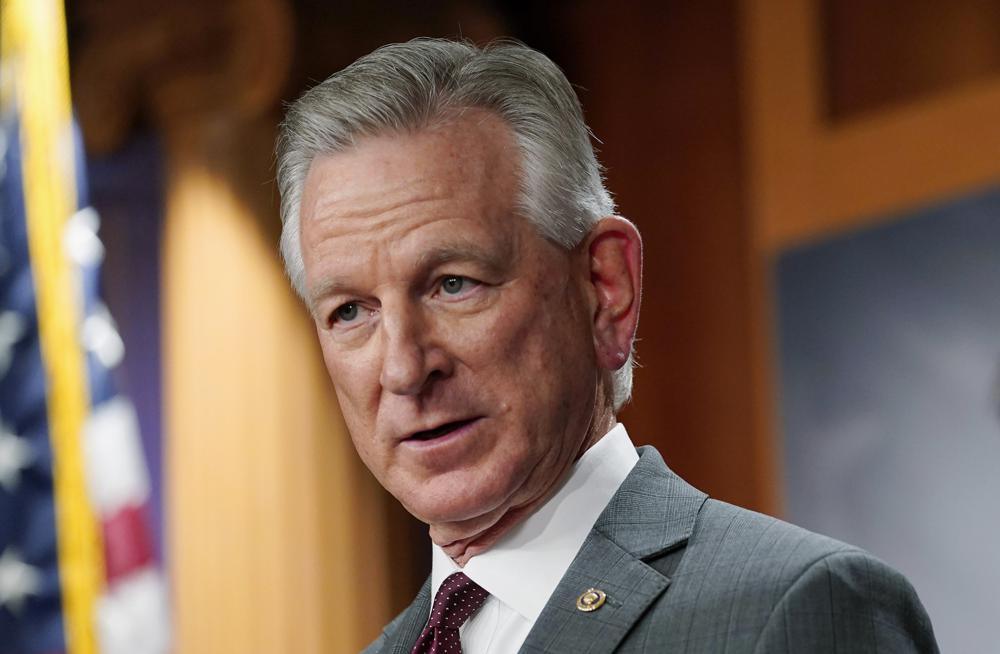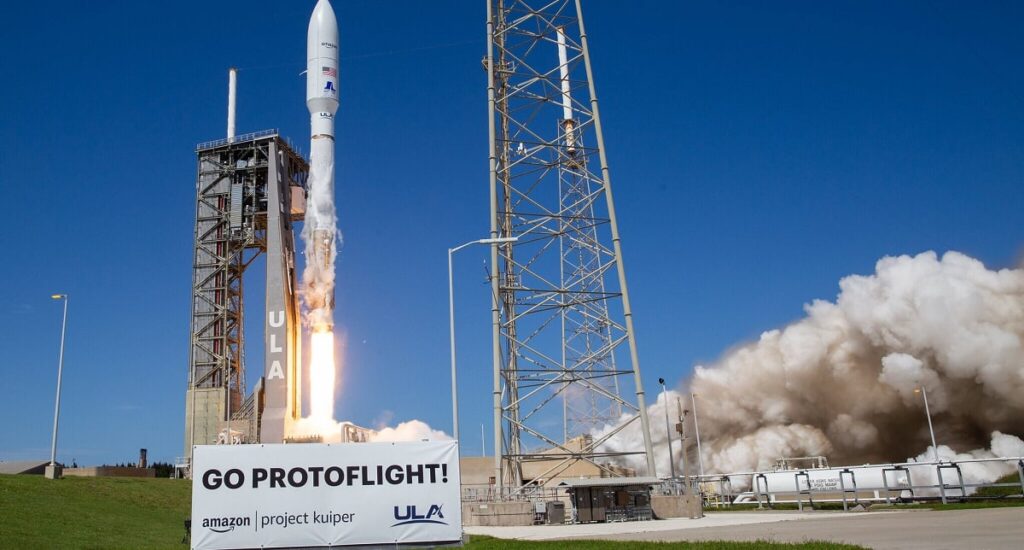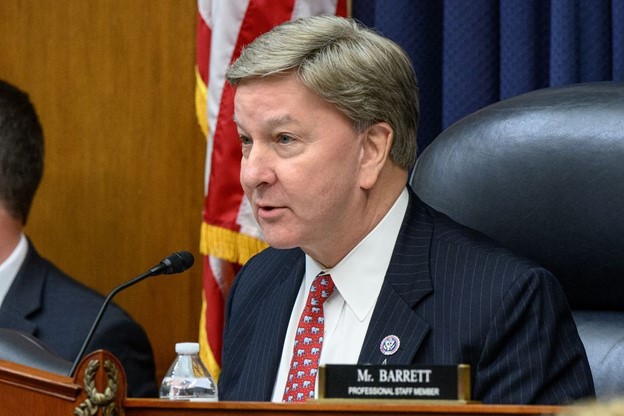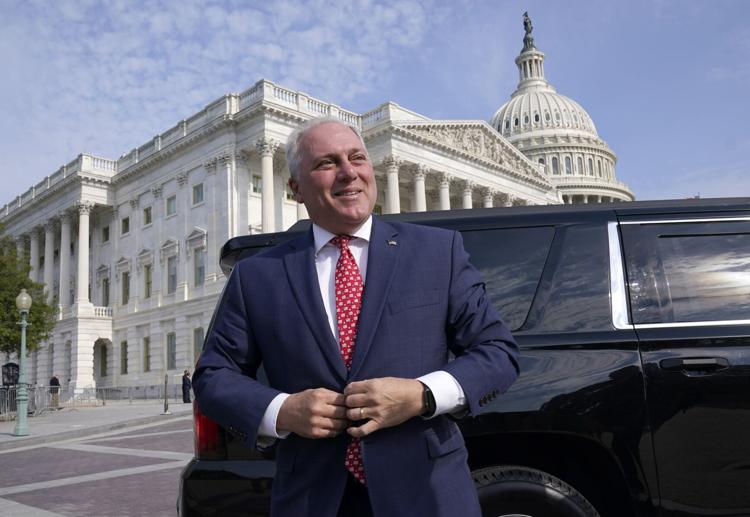Tommy Tuberville says Biden Administration is ignoring Supreme Court ruling on student loan cancellation

On Wednesday, U.S. Senator Tommy Tuberville (R-Alabama) blasted the Biden administration as the U.S. Department of Education moves forward with debt cancellation negotiations despite the U.S. Supreme Court’s recent ruling that the plan is illegal and unconstitutional. Tuberville joined four of his colleagues in a letter to U.S. Department of Education Secretary Miguel Cardona, reminding him of the plan’s unconstitutionality and of the monetary burden the plan would place on millions of taxpayers who did not receive four-year degrees or who paid for their own education. “Your choice to conveniently exclude the interests of taxpayers who paid their loans, did not take student loans, or did not attend college removes any pretenses of fairness from this panel,” Tuberville and the other senators wrote. “The 87 percent of Americans with no student loan debt have no input, instead they are left with the $400 billion projected price tag of the program—or over four times the Department of Education’s fiscal year 2023 budget.” “We are gravely concerned that the Department is undertaking a blatant political process with a predetermined outcome to achieve one of the President’s campaign promises at all costs,” the Senators wrote. Joining Senators Tommy Tuberville and Chuck Grassley (R-Iowa) in introducing the letter are U.S. Senators John Cornyn (R-Texas), Thom Tillis (R-North Carolina), and presidential candidate Tim Scott (R-South Carolina). “At the rate this administration is burning through taxpayer cash and borrowing money, Americans will be paying off Biden-era economic decisions for generations,” Sen. Grassley said. “The president must shift gears and start cutting costs.” According to information provided by Grassley’s office, the 2023 deficit of $1.7 trillion is 76 percent greater than the CBO had projected when President Joe Biden took office. Absent an accounting anomaly stemming from the Biden administration’s failed attempt to ram through its unconstitutional student debt transfer plan, the recorded deficit would have been over $2 trillion. The Senators assert that using the regulatory process this way “not only makes a mockery of negotiated rulemaking under the [Higher Education Act] but also of the separation of powers.” In August 2022, President Biden announced he would use his executive emergency powers to forgive billions of dollars in student loans by adding the debt to the national debt, requiring taxpayers to pay for other people’s student loans over the coming decades. In June 2023, the U.S. Supreme Court ruled that the President has no authority to make such an appropriation without being first passed as an act by Congress. Thus, the President’s plan was unconstitutional. Following the Supreme Court’s decision that the President did not have that authority, the U.S. Department of Education announced its intention to pursue an “alternative path to debt relief.” The department later announced it would be holding discussions to find a workaround to the SCOTUS ruling. As part of this process, the Department of Education assembled a 14-person panel to negotiate a new proposed rule to force taxpayers to pay for other people’s student loans. The agency’s selections excluded the 87 percent of taxpayers who have either already paid off their loans, did not take out loans, or chose not to attend college. If the Biden administration finalizes its latest student debt transfer plan, individuals belonging to those groups will incur the estimated $ 400 billion cost for other people’s student loans. Tuberville has repeatedly warned of the dangerous impacts of the Biden administration’s student loan plan, which could cost taxpayers as much as $559 billion over the next ten years. A non-partisan student loan expert has warned the plan could cost $1 trillion. “Left-wing activists have fundamentally shifted higher education to become a vehicle to further their political agenda — and now they’re set on [forcing]American taxpayers to pay for the overpriced indoctrination and taking athletic opportunities away from those who have worked so hard to compete,” said Tuberville. To connect with the author of this story or to comment, email brandonmreporter@gmail.com.
Katie Britt and colleagues call for increased funding for Nonprofit Security Grant Program

On Wednesday, U.S. Senator Katie Britt (R-Alabama) announced that she has recently joined Senators Chris Murphy (D-Connecticut), Chairman of the U.S. Senate Appropriations Subcommittee on Homeland Security, Cory Booker (D-New Jersey), Jacky Rosen (D-Nevada), and Shelley Moore Capito (R-West Virginia.) in calling for additional funding for FEMA’s Nonprofit Security Grant Program (NSGP) to be included in any supplemental funding package Congress may consider amid heightened concerns about the safety and security of the American Jewish community following this weekend’s attacks on Israel by Hamas and Hezbollah. The NSGP, which is funded through the U.S. Department of Homeland Security, provides funding support for target hardening and other physical security enhancements to nonprofit organizations, including synagogues and other places of worship, that are at high risk of terrorist attack. “The barbaric attacks on innocent children, women, and men in Israel are heartbreaking and stomach-turning,” said Senator Britt in a statement. “Now more than ever, we must be unequivocally strong in our response and unreservedly clear in our purpose. As I work with colleagues on both sides of the aisle in the days, weeks, and months ahead to ensure Israel has everything it needs to defend itself with overwhelming force, we must also vigilantly guard against terrorism and the forces of hate here at home. I support robust funding for the Nonprofit Security Grant Program to help secure our homeland and keep our families, places of worship, and communities safe.” “The horrific images and videos we are seeing out of Israel are unspeakable, and I am doing everything in my power to ensure Israel gets the support it needs to defend itself. As Chairman of the Senate Appropriations Subcommittee on Homeland Security,” said Sen. Murphy. “I am also focused on making sure our Jewish community at home is protected from a potential rise in anti-Semitic threats. As Congress considers emergency supplemental legislation in the coming weeks, we must include increased funding for DHS’s Nonprofit Security Grant Program to help safeguard the Jewish Community here at home.” Booker was in Israel at the time of the attack and experienced the rockets up in the sky raining down while jogging before he was whisked away to a shelter by his staff. “The harrowing images coming out of Israel and the rising toll of confirmed deaths and number of civilians being held hostage by Hamas — including American citizens — are devastating and remind us that we cannot ignore the rise in antisemitism around the world or here at home,” said Sen. Booker. “It’s crucial that we take every precaution to keep all of our religious communities safe. In addition to providing security assistance to Israel, Congress should increase funding for the Department of Homeland Security’s Nonprofit Security Grant Program, which provides important resources to safeguard nonprofits that are at an increased risk of violence, including Jewish houses of worship and other religious-affiliated groups across the country.” “The hearts of all Americans are shattered after seeing Hamas’s deadly terrorist attacks on Israel,” said Sen. Rosen. “As we witness a surge in antisemitic activity worldwide, we must make sure that Jewish Americans are protected from the threat of antisemitism. As co-chair of the bipartisan Senate Task Force for Combating Antisemitism, I’m working with my colleagues on both sides of the aisle to increase funding for the life-saving Nonprofit Security Grant Program. This critical funding ensures that synagogues, community centers, and other nonprofits have the resources needed to protect themselves from targeted violence.” “Throughout my time on the Homeland Security Appropriations Subcommittee, I have seen and learned about the need so many have for funds through this program,” said Sen. Capito. “Ensuring its inclusion in a supplemental further confirms our commitment to the safety and security for communities of faith, particularly synagogues across the nation that are too often the target of threats.” While Gaza is halfway around the world, Hamas has many supporters worldwide, including in the U.S., as evidenced by the protests that popped up in cities across the U.S. celebrating the Hamas attacks while they were ongoing. The Hamas attacks on Jewish civilians in Israel and the likely Israeli counteroffensive against Hamas and the Gaza Strip may only embolden antisemitism in the U.S. and abroad. In 2019, five men were stabbed at a Hanukkah service in New York. In 2022, an armed man took hostages at a synagogue in Texas. Sen. Britt was elected to the Senate in 2022. She has already visited Israel in her Senate duties. To connect with the author of this story or to comment, email brandonmreporter@gmail.com.
Alabama-assembled United Launch Alliance rocket powers first Amazon satellites into orbit

A United Launch Alliance Atlas V rocket with deep Alabama roots lifted off from Cape Canaveral days ago on a milestone mission that sets the stage for ULA rockets to deploy satellites for an ambitious Amazon broad network. The Atlas V 501 rocket blasting off last Friday launched the Protoflight mission for Amazon’s Project Kuiper, a low-Earth-orbit satellite network that will provide fast, affordable internet service to under-resourced communities around the world. ULA’s factory in Decatur played a key role in the successful mission, which delivered two satellites to orbit 311 miles above Earth. Workers at the Alabama facility handled final assembly of the Atlas V and fabricated its booster, as well as producing the rocket’s Centaur second stage. Partner Beyond Gravity, on the ULA campus, fabricated the 5-meter payload fairing that encased the satellites as the rocket’s nose cone. “This initial launch is the first step in support of deployment of Amazon’s initiative to provide fast, affordable broadband service to unserved and underserved communities around the world,” said Gary Wentz, ULA vice president of Government and Commercial Programs. The Protoflight launch represented the first mission in a broad commercial partnership between ULA and Amazon to launch the majority of the Project Kuiper constellation — and means a lot of activity at the ULA factory in Decatur. Amazon plans to deploy more than 3,200 Kuiper satellites over more than 80 missions, with ULA rockets booked for more than half of those missions. ULA’s next-generation Vulcan rocket — also assembled in Decatur — will be the workhorse on the Kuiper missions. In fact, ULA’s next planned launch is the inaugural Vulcan mission from Cape Canaveral Space Force Station. To boost production, both ULA and Beyond Gravity are expanding in Decatur, through projects involving a combined $350 million in new investment and 200 new jobs. Powering the new Vulcan rocket will be Blue Origin’s BE-4 rockets, produced at the space flight company’s factory in Huntsville. Greg Canfield, secretary of the Alabama Department of Commerce, said these developments point to the growth taking place in the space segment of the state’s aerospace industry. “Alabama has long been a major player in designing and manufacturing the most innovative, complex solutions to conquer skies and space, and we are continuing to influence the direction of the global industry today,” Canfield said. “Companies around the world know our workforce has proven itself, time and time again, and that’s why they keep turning to Alabama to help solve the industry’s biggest challenges through groundbreaking work,” he said. This story originally appeared on the Alabama Department of Commerce’s Made in Alabama website.
Mike Rogers and Adam Smith denounce Hamas atrocities as “pure evil and inexcusable”

On Wednesday, Congressmen Mike Rogers (R-AL03) and Adam Smith (D-Washington) released a joint statement denouncing the terrorist attacks on Israel over the last few days. Rogers is the Chairman of the House Armed Services Committee, while Smith is the Ranking Member of the Committee. Collectively, the pair are the most powerful Republican and the most powerful Democrat on the House Committee that oversees all of the armed forces of the United States. “Over the past few days, we have seen the horrific stories, images, and videos depicting the barbarism of Hamas terrorists who attacked Israel,” Rogers and Smith wrote. “These inhumane acts are pure evil and inexcusable – there is no ‘but.’ We urge all nations in the region to join us in our bipartisan call condemning these atrocities, to use their influence to discourage others from taking advantage of this situation, and to make it clear that terrorists and bad actors engaging in or exploiting the conflict will not be tolerated.” According to news reports, over one thousand Israelis have been killed in the attacks. Many of them were women and children – in some cases, asleep in their beds. Another 2,800 were wounded in the unprovoked attacks. According to the White House, at least 14 Americans are among the dead. Over Israelis were taken back to Gaza as prisoners, including some Americans. “We remain deeply concerned for the safety of the American and Israeli hostages held by Hamas terrorists – these hostages must be released,” Rogers and Smith stated. The U.S. carrier battle group led by the U.S.S. Gerald Ford (the newest supercarrier) moved into position off the coast of Israel to serve as a deterrent if anyone should use this moment as a pretext to attack Israel while the Israeli armed forces are preoccupied with dealing with Hamas and Hezbollah. “Hamas didn’t consider the unbreakable spirit and strength of the people of Israel before the attack,” Rogers and Smith concluded. “We are proud to stand shoulder to shoulder with Israel.” President Joe Biden said in a statement, “This morning, I spoke with Prime Minister [Benjamin] Netanyahu about the horrific and ongoing attacks in Israel. The United States unequivocally condemns this appalling assault against Israel by Hamas terrorists from Gaza, and I made clear to Prime Minister Netanyahu that we stand ready to offer all appropriate means of support to the Government and people of Israel. Terrorism is never justified. Israel has a right to defend itself and its people. The United States warns against any other party hostile to Israel seeking advantage in this situation. My Administration’s support for Israel’s security is rock solid and unwavering.” Republicans have criticized Biden for not holding Iran accountable when they are the number one state sponsor of terrorism in the world. Rogers is serving in his eleventh term representing Alabama’s Third Congressional District. To connect with the author of this story or to comment, email brandonmreporter@gmail.com.
Gas prices could spike amid Middle East conflict, experts say

By Casey Harper | The Center Square The ongoing conflict in the Middle East could lead to a spike in gas prices in the U.S. Oil prices have already signaled a surge in response to the major conflict between Israel and Hamas terrorists in Gaza, which could drag other nearby oil-producing nations into the fight. “The conflict will almost certainly drive up gas prices, but much will depend on its scope and duration,” Paige Lambermont, an energy expert at the Competitive Enterprise Institute, told The Center Square. “This uncertainty itself can drive up prices. But there is one thing that is certain: Increasing the oil supply would mitigate any price effects connected to the conflict and would help to reduce the extremely high gas prices that Americans were already dealing with when they go to the pumps.” Oil prices have fluctuated in the days since the attack, but overall there was an initial spike in crude oil futures of roughly 4-5% that has so far leveled off. Gas prices surged in the U.S. in the summer of 2022, hitting a national average of $5 per gallon of regular gas in part because of the Russian invasion of Ukraine. To combat those higher prices, President Joe Biden released tens of millions of barrels of oil from the Strategic Petroleum Oil Reserve, the nation’s stockpiles normally reserved in case of emergencies. According to the federal Energy Information Administration, that reserve has been nearly cut in half since 2020. Biden took fire for releasing the oil from critics who said he was only doing it because the 2022 midterm elections were drawing nearer and that lowering the stockpile so dramatically could leave the U.S. vulnerable in case of a large-scale conflict. Now that a conflict may be on the horizon and Middle East oil supplies are even more volatile, that criticism has resurfaced. “How high will oil prices go?” Peter St. Onge, an economist at the Heritage Foundation, wrote on X, formerly known as Twitter. “Goldman and Bloomberg are already calling $100 oil. Some are saying $150 if Iran gets involved. Joe Biden broke all the easy solutions after he drained the Strategic Petroleum Reserve to just 17 days. Then burned the Saudis over and over, who may be in no mood to help.” Lambermont said these and other policies have left the U.S. unprepared for global shocks. “Unfortunately, the Biden administration has long been pushing policies that reduce the oil supply,” she told The Center Square. “Just in the last several weeks, the administration canceled seven oil and gas lease sales in the Arctic National Wildlife Refuge, proposed a new rule to impose an outright ban on oil and gas leasing in the National Petroleum Reserve-Alaska, and released an offshore oil and gas lease sale plan that the administration boasts would have ‘the fewest oil and gas lease sales in history.’” As The Center Square previously reported, Hamas terrorists fired thousands of missiles into Israel over the weekend, and militants spread throughout the country, killing and capturing both soldiers and civilians. The casualty numbers are still in flux, but hundreds of Israelis were killed and even more injured. Israel quickly fired back, launching strikes in Gaza and declaring war, promising unparalleled retribution for the attacks. The conflict, which is likely to escalate and continue for at least the rest of this year, has raised questions about the U.S. financial and military aid to Israel as well as how oil markets will be impacted. “Historically, any tensions in the Middle East cause market volatility, and I don’t see this being any different, especially if Israel takes direct action against Iran,” Daniel Turner, executive director of the energy workers advocacy group, Power the Future, told The Center Square. “The Iranian regime feels particularly empowered right now. They see Carter-esque weakness in the White House and have built strong alliances with China and Russia.” According to AAA, the national average price for a gallon of regular gasoline is $3.66. “Despite sanctions and international pressure, many of our adversaries never stopped producing and selling oil, and now they are cash rich and emboldened,” Turner said. “Higher oil prices are better for them and will likely result from inevitable escalating violence in the region.” For now, experts say the impact on prices will largely depend on the length of the conflict and which world powers get involved. “Prices at the pump are sensitive to world oil markets because the cost of crude oil is set at the global level and makes up more than half the cost of refined gasoline in the United States, on average,” Travis Fisher, an economist at the Cato Institute, told The Center Square. “Any upticks in crude oil prices tend to translate to increases in gasoline prices. “For now, the price increases in global crude oil markets appear modest, but that could change if the conflict widens.” Republished with the permission of The Center Square.
House Republicans nominate Steve Scalise for speaker, faces tough vote

By Casey Harper | The Center Square U.S. House Republican Majority Leader Steve Scalise of Louisiana reportedly received the backing of a majority of his fellow House Republicans for the speaker of the House nomination during a closed conference meeting Wednesday afternoon. Now, Scalise faces a vote of the full House for the vacant position possibly this week, and his battle is far from over. Scalise needs the support of nearly all his Republican colleagues since Democrats will likely vote against his nomination. Scalise was by no means a landslide winner of the vote, which was conducted by secret ballot, winning 113-99, according to multiple media reports. In particular, House Judiciary Chairman Jim Jordan, R-Ohio, put his name in the hat for speaker and received some support, including the endorsement of former President Donald Trump. U.S. Rep. Kevin McCarthy, R-Calif., is no stranger to wrangling Republicans in this setting. He narrowly secured the speakership for this Congress after more than a dozen public votes, but was ousted after he reached a deal with Democrats to keep the federal government open temporarily late last month. If Scalise fails to get the necessary votes, McCarthy could resurface as a contender. McCarthy said he would not run again after being ousted but later softened his tone, saying he would “let the conference decide.” Another issue at hand is whether one lawmaker will be able to file a motion to vacate the speaker, an unusual allowance given by McCarthy to secure the needed Republican votes after the marathon series of speakership votes earlier this year. U.S. Rep. Matt Gaetz, R-Fla., filed that motion, which led to the ousting of McCarthy and frustration from many of his Republican colleagues. With a partial government shutdown looming in mid-November as well as pressure to supply funds and munitions to both Ukraine and Israel given the conflicts there, House Republicans are facing increased pressure to figure things out quickly. Scalise is the current Majority Leader, so if he is able to win the speakership, a significant leadership role in the party will immediately open up. Scalise announced earlier this year that he was diagnosed with blood cancer, but he has insisted he is up to the leadership role. Until the House chooses a speaker, no legislation can proceed. The current Speaker Pro Tempore is Rep. Patrick McHenry, R-N.C., who will determine the times of any speaker votes until a speaker secures the spot. Republished with the permission of The Center Square.

